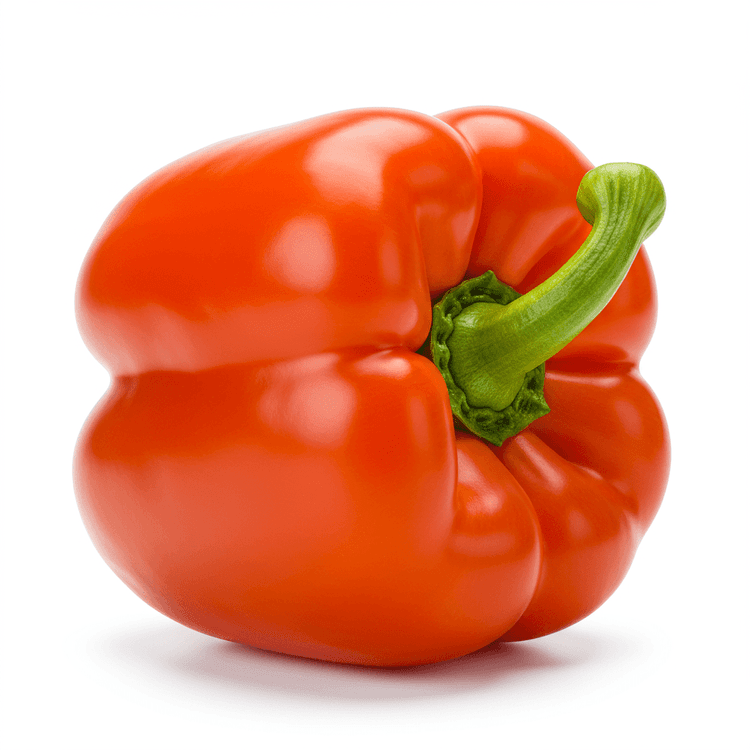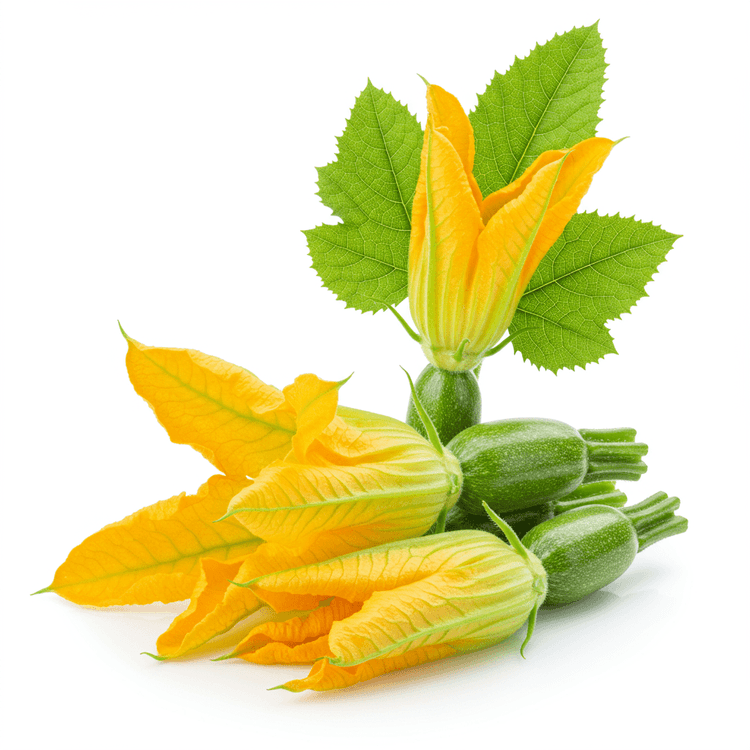
Bell Pepper
Bell peppers, also known as sweet peppers or capsicums, are vibrant, crunchy vegetables that come in a variety of colors, including green, red, yellow, and orange. They have a mild, sweet flavor with a crisp texture, making them a versatile ingredient in both raw and cooked dishes. Bell peppers are rich in vitamins A and C, antioxidants, and dietary fiber, making them a nutritious addition to meals. Their glossy skin and hollow interior make them ideal for stuffing, slicing, or dicing, and they add a pop of color and flavor to any recipe.
Common Uses
- Add raw bell peppers to salads for a crunchy texture and sweet flavor.
- Roast or grill bell peppers to enhance their natural sweetness and smoky flavor, perfect for side dishes or toppings.
- Use bell peppers as a vessel for stuffed recipes, such as filling them with rice, meat, or cheese for a hearty meal.
- Incorporate diced bell peppers into stir-fries, soups, or stews for added color and nutrition.
- Blend roasted bell peppers into dips, sauces, or spreads like hummus or romesco for a rich, smoky taste.
- Slice bell peppers into strips for snacking with dips like hummus or ranch dressing.
Nutrition (per serving)
Nutrition (per serving)
Calories
20.0kcal (1%)
Protein
0.9g (1.8%)
Carbs
4.6g (1.67%)
Sugars
2.4g (4.8%)
Healthy Fat
0.1g
Unhealthy Fat
0.0g
% Daily Value based on a 2000 calorie diet
Nutrition (per serving)
Calories
20.0kcal (1%)
Protein
0.9g (1.8%)
Carbs
4.6g (1.67%)
Sugars
2.4g (4.8%)
Healthy Fat
0.1g
Unhealthy Fat
0.0g
% Daily Value based on a 2000 calorie diet
Health Benefits
- Rich in vitamin C, which supports immune health and skin vitality.
- Contains antioxidants like beta-carotene, promoting overall wellness.
- Low in calories, making it a great addition to weight-conscious diets.
- Adds natural sweetness and crunch to dishes, enhancing flavor and texture.
- Versatile in cooking, suitable for raw, roasted, grilled, or sautéed preparations.
- Provides dietary fiber, supporting healthy digestion.
Substitutes
Chefadora AI is here.
Experience smarter, stress-free cooking.
Storage Tips
Store bell peppers in the refrigerator's crisper drawer, unwashed, in a breathable plastic or mesh bag to maintain freshness. They typically last 1-2 weeks when stored properly. Avoid cutting them until ready to use, as this can reduce their shelf life. If you need to freeze them, chop into desired sizes, spread on a tray to freeze individually, then transfer to an airtight container or freezer bag.
Marnirni-apinthi Building, Lot Fourteen,
North Terrace, Adelaide, South Australia, 5000
Australia

